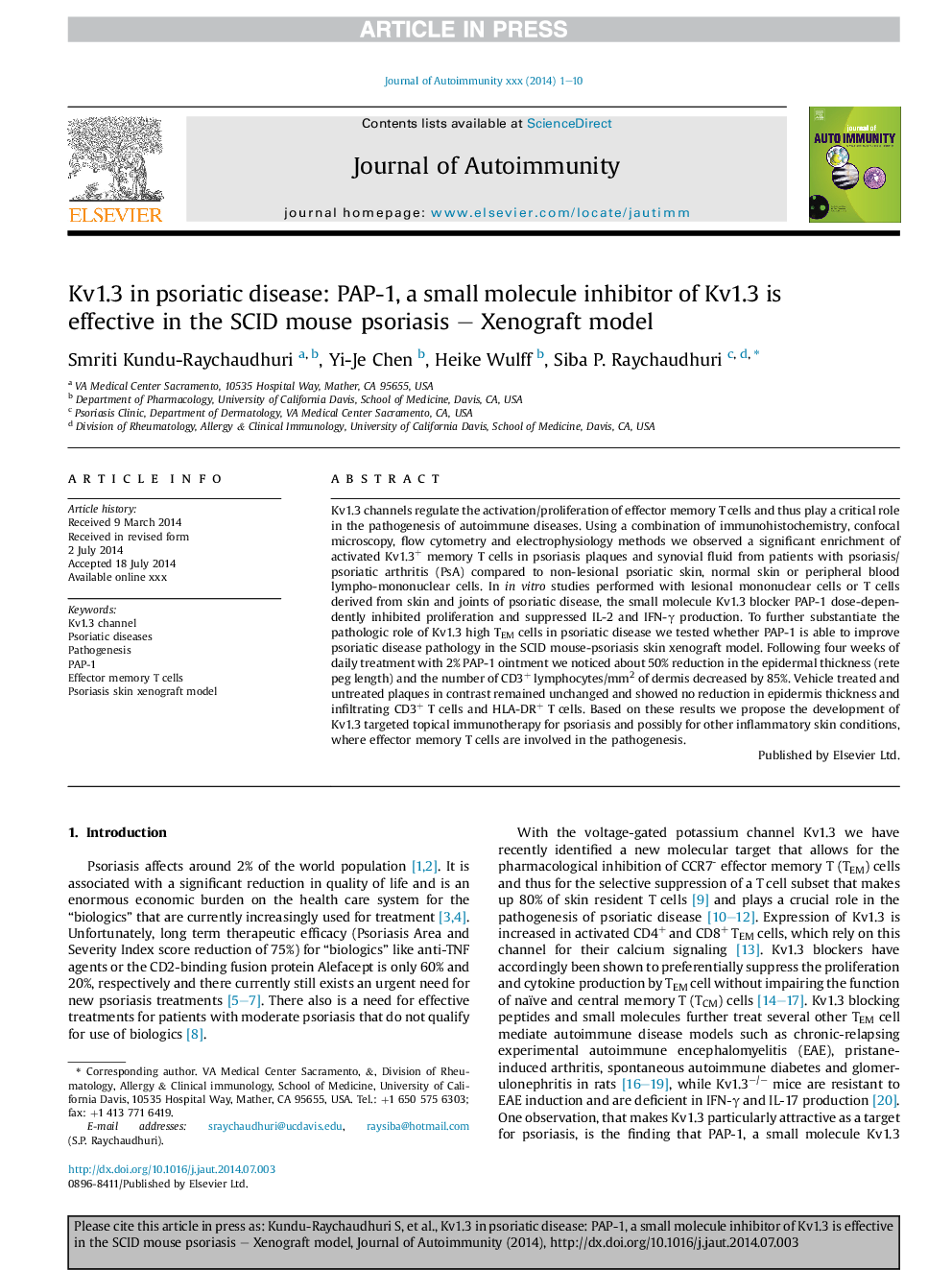| کد مقاله | کد نشریه | سال انتشار | مقاله انگلیسی | نسخه تمام متن |
|---|---|---|---|---|
| 6119231 | 1592294 | 2014 | 10 صفحه PDF | دانلود رایگان |
عنوان انگلیسی مقاله ISI
Kv1.3 in psoriatic disease: PAP-1, a small molecule inhibitor of Kv1.3 is effective in the SCID mouse psoriasis - Xenograft model
دانلود مقاله + سفارش ترجمه
دانلود مقاله ISI انگلیسی
رایگان برای ایرانیان
کلمات کلیدی
موضوعات مرتبط
علوم زیستی و بیوفناوری
ایمنی شناسی و میکروب شناسی
ایمونولوژی
پیش نمایش صفحه اول مقاله

چکیده انگلیسی
Kv1.3 channels regulate the activation/proliferation of effector memory T cells and thus play a critical role in the pathogenesis of autoimmune diseases. Using a combination of immunohistochemistry, confocal microscopy, flow cytometry and electrophysiology methods we observed a significant enrichment of activated Kv1.3+ memory T cells in psoriasis plaques and synovial fluid from patients with psoriasis/psoriatic arthritis (PsA) compared to non-lesional psoriatic skin, normal skin or peripheral blood lympho-mononuclear cells. In in vitro studies performed with lesional mononuclear cells or T cells derived from skin and joints of psoriatic disease, the small molecule Kv1.3 blocker PAP-1 dose-dependently inhibited proliferation and suppressed IL-2 and IFN-γ production. To further substantiate the pathologic role of Kv1.3 high TEM cells in psoriatic disease we tested whether PAP-1 is able to improve psoriatic disease pathology in the SCID mouse-psoriasis skin xenograft model. Following four weeks of daily treatment with 2% PAP-1 ointment we noticed about 50% reduction in the epidermal thickness (rete peg length) and the number of CD3+ lymphocytes/mm2 of dermis decreased by 85%. Vehicle treated and untreated plaques in contrast remained unchanged and showed no reduction in epidermis thickness and infiltrating CD3+ T cells and HLA-DR+ T cells. Based on these results we propose the development of Kv1.3 targeted topical immunotherapy for psoriasis and possibly for other inflammatory skin conditions, where effector memory T cells are involved in the pathogenesis.
ناشر
Database: Elsevier - ScienceDirect (ساینس دایرکت)
Journal: Journal of Autoimmunity - Volume 55, December 2014, Pages 63-72
Journal: Journal of Autoimmunity - Volume 55, December 2014, Pages 63-72
نویسندگان
Smriti Kundu-Raychaudhuri, Yi-Je Chen, Heike Wulff, Siba P. Raychaudhuri,